In March 2017 N’Golo Kanté, the defensive midfield star for Chelsea and France, returned home from London to celebrate his 26th birthday with his family on the Les Géraniums estate at Rueil-Malmaison in the western suburbs of Paris where his mother still lives.
After growing up in that area, where he one of eight children in a immigrant family from Mali of very modest means, and having lost his father at the age of eleven, Kanté's life has since resembled something of a fairytale. He was a member of the French squad who were runners up in the Euro 2016 tournament, he won the English Premier League with Leicester City, then moved to glamorous London club Chelsea – where he earns 5 million euros net a year - and became a World Cup winner with France in 2018.
But the footballer's return to Rueil-Malmaison in March 2017 turned into something of a nightmare. On Les Géraniums estate N’Golo Kanté was taken to one side by several men. Two of them were brothers from the nearby town of Nanterre who threatened to kill the player's agent unless he, Kanté, sacked him. At the heart of the disagreement were the colossal amounts of money at N’Golo Kanté now commands as a top player.
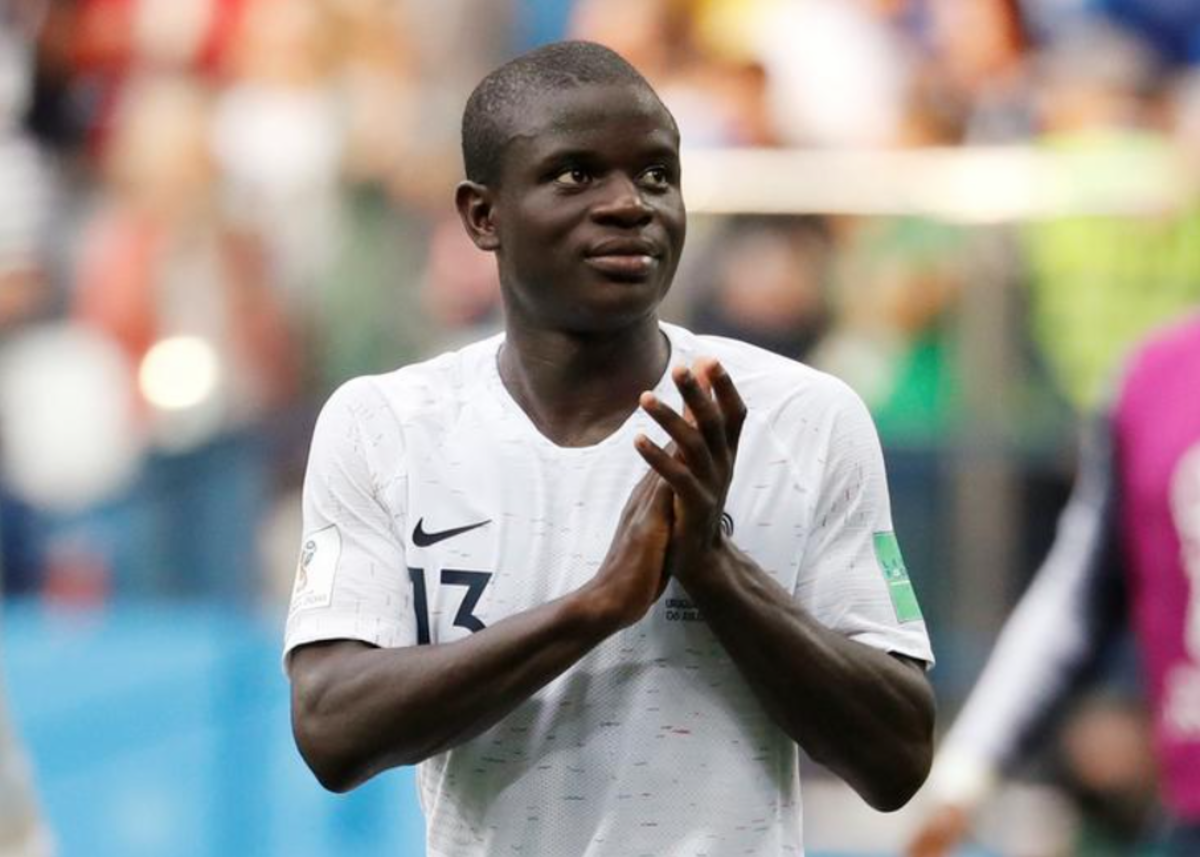
Enlargement : Illustration 1

One of the two men from Nanterre was Rachid Saadna. He is one of Kanté's advisors and moves in the circles close to the player's official agent, Abdelkarim Douis, 32, who is also from Nanterre. As Mediapart revealed last year, Douis persuaded the player to set up a company in the tax haven of Jersey.
Eight months before the encounter in Rueil-Malmaison, Douis had received 4.8 million euros in commission from Kanté's July 2016 transfer from Leicester City to London club Chelsea, which the agent put in his own offshore company in Jersey. Rachid Saadna said he wanted his share of the money, which he said Douis had not given him as promised. To sort out the disagreement Rachid Saadna called in his brother Houari.
In an interview with Mediapart, N’Golo Kanté denied that there had been any threats, though he did say there had been a “discussion” that day with the Saadna brothers. However, the threats did in fact take place. The scene was confirmed to Mediapart by several indirect sources but in particular by a recording which we have obtained. In this audio tape Rachid Saadna says that “perhaps my brother had a gun” but that he did not point the “shooter” at N’Golo Kanté. “My brother came with intelligence... he did not come to [carry out] violence on a small guy. He gave him a choice,” says Rachid Saadna on the recording.
Saadna adds that his brother Houari had laid out this choice to Kanté in the following terms: “My brother has been extorted, he's been robbed, wronged ….I'm giving you a choice. You work with a lawyer and you stop working with the other. Listen, I'm not joking, either you sort out the issue or I'll take out Karim Douis [editor's note, Kanté's agent], end of story.”
Rachid Saadna says that in the following days he got N’Golo Kanté to sign a contract of sports representation in favour of an individual. “We didn't force N'Golo,” he says in the recording. But the player's official agent, Abdelkarim Douis, managed to block the move. According to the recording he called someone close to the Saadna brothers to pass on this message to them: “My man, you wanted to swindle me … in any case, the little one is traumatised, I'm going to take him to the police station.”
When contacted by Mediapart Abdelkarim Douis denied having made these comments. In a written response he said first of all that he was “not aware” of the episode of the threats, before taking the view that it had “never taken place”. Houari Saadna refused to respond to Mediapart's request for a comment and his brother Rachid Saadna did not reply to questions put to him.

Enlargement : Illustration 2

N’Golo Kanté did not made an official complaint after the March 2017 meeting. And the issue was clearly settled 'amicably' some time later. For in November 2018, when N’Golo Kanté's contract at Chelsea was extended, Abdelkarim Douis shared the agent's commission he received with Rachid Saadna, despite the pressure that had been exerted on the player 18 months earlier.
The episode in 2017 illustrates a concern that some people close to the footballer – and who were interviewed by Mediapart as part of this investigation – have felt for several years. Has N’Golo Kanté come under the influence of worrying individuals because of the fortune that he is amassing year after year thanks to football and his sponsorship deals?
That is what his advisor Rachid Saadna says. In the recording he describes Kanté's agent, Abdelkarim Douis, as a man who “only has money in his heart” and who wants to remain the “only one” to control the player. Saadna claims that N’Golo Kanté does not act “independently” and that Douis has “eaten his brain”. When questioned Douis said he had “no problem” with Rachid Saadna.
Saadna's comments reflect fears that Mediapart has heard from several sources, who say they have noticed a real uneasiness in the player, someone known for his kindness and for his behaviour, which they find out of keeping. For example, despite his more than comfortable earnings, the French international has no property portfolio, even though he has told several people close to him that he wanted to look after his family and buy a house for his mother.
The rumour that N’Golo Kanté had been threatened with a gun quickly spread through Rueil-Malmaison and Nanterre, where the main players in this saga come from. Several people close to the player told Mediapart that they had expressed their concerns directly to him. According to these sources the Chelsea player did not deny the episode but instead looked embarrassed and cut short the discussion. “That reaction did not surprise me,” one friend told Mediapart. “N'Golo is extremely discreet and speaks very little, especially about his problems. When you tell him something that's wrong, he denies it. When it's true he evades it.”
In the written responses sent by his lawyer, N’Golo Kanté formally denied being under anyone's influence. “You are taking me for an immature person, you should know that I am responsible and make my decisions freely and consciously,” said the footballer.
Another advisor to the footballer, Nouari Khiari, aged 52, and also from Nanterre, said he had heard the story about the threats discussed in Kanté's presence. Khiari is the agent in charge of handling Kanté's image rights but today the player wants to part company with him.
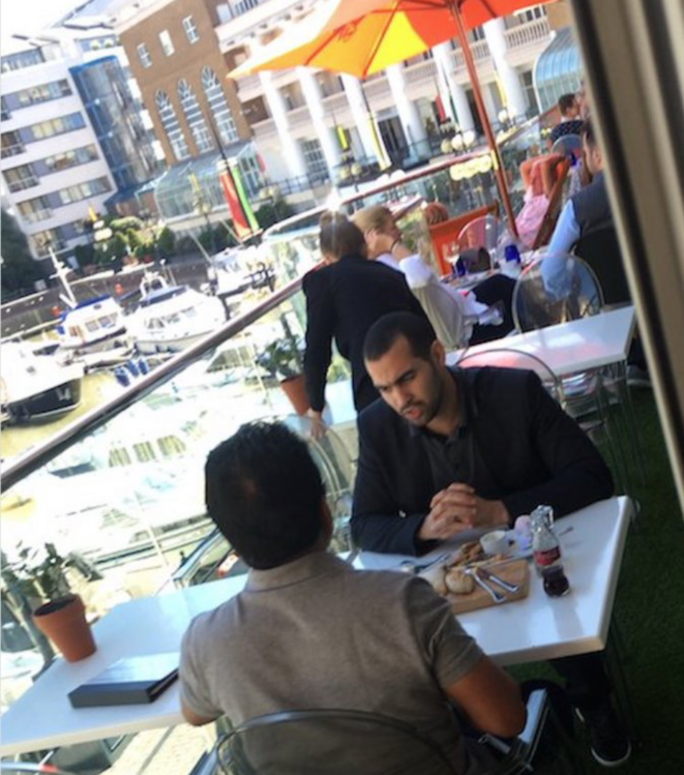
Enlargement : Illustration 3

On May 29th 2019 Khiari went to the police station at Suresnes west of Paris and made a formal complaint of “death threats” that he claims he received from Kanté's agent Abdelkarim Douis. In his official statement, which Mediapart has seen, Nouari Khiari states that having heard “rumours” of “deaths threats with a gun” against the player, he went to London on May 22nd 2017 to “shed some light on this story” with Douis.
The two men met, in the presence of a witness, at the Chelsea Harbour Hotel close to Chelsea's ground, Stamford Bridge. “To my great surprise Abdelkarim confirmed the facts,” Khiari says in his statement to police. He states that Douis told him that in March 2017 some “armed people”, among them Rachid and Houari Saadna, had “gone to the Les Géraniums estate at Rueil-Malmaison” in order to force N'Golo Kanté to “sign a contract of sporting representation into the name of a lawyer”.
In his statement Nouari Khiari said that Kanté's agent Souis advised him not to get involved, saying: “For those who come looking for me too much I've got some teams … I know some Russians, Albanians, guys that I pay and they take out who I want.” Khiari said he told Douis that if necessary he would go to the police to protect N'Golo Kanté. “Watch out for yourself,” he says the agent replied.
The witness at this Chelsea Harbour Hotel meeting, a lawyer in London, did not respond to a request for a comment.
Abdelkarim Douis denied having made any of the comments that Khiari claimed he had made, insisting that the latter was seeking to “avenge himself by using us”. He described Khiari as an “inflammatory character, a liar” who he claims “swindled” Kanté. After Mediapart had interviewed Abdelkarim Douis, the agent told the French sports newspaper L'Équipe that he had made a formal complaint against Khiari for “death threats, assault and slander”. He declined to give details to back up these claims. In response Nouari Khiari said: “It's a defensive ploy, pure lies. Where is the material proof?”
Kanté's image agent Khiari states in his police statement that, following his meeting with Douis in London, he raised the issue of the attempt to pressurise him with the footballer himself: “He [editor's note, Kanté] told me then that everything had been settled and that it was fine, without denying or confirming the facts. I then told him that if he had problems and that if he was exposed to serous danger he could talk to me about it but he told me that it was fine and that he didn't want any problems.”
Kanté's agent put 4.8 million euros in Jersey company
When contacted by Mediapart, N’Golo Kanté only responded after we had called his agent. In the end he agreed to meet us on November 18th with his lawyer, Nadia Zrari, in order to “reassure” us, the lawyer explained. The Chelsea star told Mediapart that he had had a “discussion” with the Saadna brothers on Les Géraniums estate in March 2017 but denied that he had been threatened with a gun. “I think that's a tendentious question. I am a football professional, I don't live in a world of gangsters,” he said via his lawyer.
Both in person and in writing, the midfielder avoided the majority of Mediapart's questions. The message that he gave us was that he has an excellent relationship with his football agent Abdelkarim Douis and that his only problems came from his image agent Nouari Khiari, with whom he is seeking to part company. Having received our questions Kanté's entourage told L'Équipe that the player had made a formal complaint on Tuesday November 28th against Khiari for “fraud”, “attempted fraud”, “breach of trust” and “illegally exercising the profession of a sports agent”.
The story of the Chelsea and France midfielder is that of a young man who came from a disadvantaged background who went on to become rich and famous, and who is now surrounded by people close to him who come from his home town or surrounding areas. It is a phenomenon which is becoming more and more widespread around the Paris region's sprawling estates, where the potential of obtaining some of the millions of euros involved in transfer deals provokes greed. “On the touchline you see more and more touts who are not agents, who have nothing to do with football, but who are trying to get hold of players purely because of the lure of money,” says the head of a local amateur football club in the Paris region. “It's very worrying.”
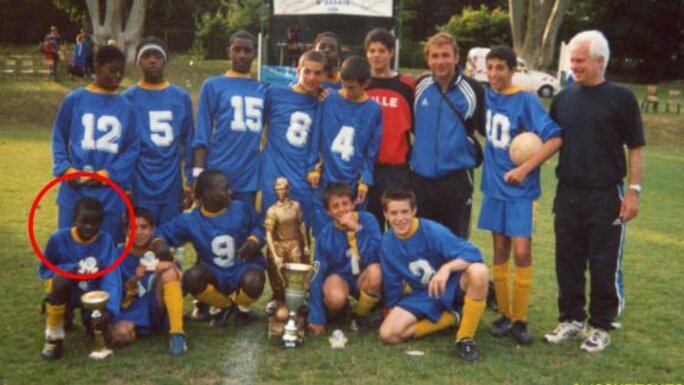
N’Golo Kanté began playing football at JS Suresnes, a club close to his home town of Rueil-Malmaison and also Nanterre. It was on this club's ground in 2007 that a 16-year-old Kanté first met another amateur footballer four years his senior: Abdelkarim Douis. “We were teammates and friends,” said Kanté.
Douis, who came from the Carriers district of Nanterre, set up a short-lived motorbike taxi service then worked as an estate agent. But he was also interested in another business – football. And in his sights was a young player he had met seven years earlier at JS Suresnes – N'Golo Kanté.
In June 2015, after a brilliant season at Caen, a small club in Ligue 1, the top-flight of French football, Kanté was wanted by both the much wealthier French club Olympique Marseille and Leicester City in the English Premier League. The English club's chief scout David Walsh tasked French agent Grégory Dakad with getting hold of the French midfielder. “We had to almost kidnap him,” Walsh told The Sunday Times newspaper. “I had friends in France bring him over. His primary agent didn’t even know he was there.”
Questioned last year by Mediapart during our previous investigation, Kanté's primary agent Philippe Flavier told us that he had started discussions with Marseille and Leicester's agent, but had been abruptly dismissed in writing by N'Golo Kanté, without a word of explanation. “It often happens that some players get close to or fall under the influence of people they knew when they were younger, who come from the same background,” he told Mediapart. Approached again in relation to this article, shortly before his death on October 2nd 2019, he refused to say more. Abdelkarim Douis said that Flavier “was no longer the player's agent more than six months before his transfer to Leicester”.
N’Golo Kanté had chosen three new advisors. These were Abdelkarim Douis, Rachid Saadna – a distant cousin of Douis, also from the Paris suburb of Nanterre, whose ambition was to become an agent and who visited grounds scouting players – and Idriss Gharout, a childhood friend of Kanté’s with whom he had played at the J.S. Suresnes club.

Enlargement : Illustration 5

Because none of the three had an official agent’s licence they acted through a qualified agent, Kamel Bengougam, to conclude Kanté’s 8 million-euro transfer to Leicester City. It was Bengougam who was paid the 160,000 euros in commission for the deal.
Bengougam did not respond to Mediapart’s attempts to question him about the transaction.
According to the sound recording obtained by Mediapart, Rachid Saadna said Abdelkarim Douis travelled to Leicester to finalise the transfer. Questioned, Douis denied the suggestion. “I wasn’t involved in this transfer and therefore I didn’t receive any commission for it,” he said. Neither Rachid Saadna nor Idriss Gharout responded to questions submitted to them.
Abdelkarim Douis took on the role of leader of the trio and officially became Kanté’s new agent. In January 2016, he became officially registered with the Football Association (FA) – the governing body of association football in England – as an “Intermediary”, a rank of agent which is far easier to obtain in England than it is in France. On June 2nd that year, Douis created a London-registered company, KDS Football Management, and days later, on June 8th, he set up another company, KDS Sports Consultancy, which was registered in the Channel Island tax haven of Jersey.
In July 2016, Douis negotiated Kanté’s transfer from Leicester City to Chelsea for 38 million euros. Also involved in the negotiations alongside him was players’ agent Grégory Dakad, who one year earlier had been responsible for recruiting Kanté for Leicester. The two men obtained a commission of 10 million pounds (about 12 million euros) for Kanté’s transfer to the London club, representing 30 percent of the total transfer fee. Of that sum, the equivalent of 7.2 million euros went to Dakad, and 4.8 million euros went to Douis.
In an internal email announcing the agents’ commissions sent by Chelsea director Marina Granovskaia to the club’s owner Roman Abramovich, she warned the Russian billionaire in advance not to “faint” at the vast sums.

Enlargement : Illustration 6

Mediapart understands that the 4.8 million euros for Douis were paid into his Jersey-based company. In documents seen by Mediapart, he stated that he was living in France over the period between June 2016 and June 2017. Asked whether he was fiscally domiciled in France and whether he had declared the sum paid into the tax haven of Jersey he replied: “That is confidential information and everything is perfectly legal.”
Douis said he did not share the sum he received for Kanté’s transfer to Chelsea. It would appear that Rachid Saadna’s displeasure at this led to the threats made in March 2017.
N’Golo Kanté is today again at the centre of another dispute among his entourage, this time between Douis and Nouari Khiari over the player’s image rights and the intermediary commissions paid out by German sportswear giant Adidas, which is Kanté’s exclusive sponsor.
As previously reported by Mediapart, based on documents obtained with its media partners in the European Investigative Collaborations (EIC) network from the whistleblowing platform Football Leaks, in the summer of 2016, at the time of Kanté’s transfer from Leicester City to Chelsea, the London club proposed to the player a tax-dodging structure that would have allowed him to be remunerated, in part, through image rights paid into Jersey. After initially agreeing to the idea, Kanté then firmly turned the offer down because he feared he could run foul of the British tax authorities. In an email obtained by Football Leaks, his British tax advisor informed Chelsea in April 2017 that Kanté was “inflexible” over the matter, and that “he simply wants a normal salary”.
But a hitherto unpublished document from the Football Leaks data shows that the player’s entourage appears to have wanted otherwise. The document is a contract dated February 10th 2017 and signed by a frontman who administered NK Promotions, a Jersey-based company set up for Kanté. The contract (see below) was for NK Promotions to receive 15 percent of Kanté’s image rights paid by Chelsea, which to all accounts was contrary to the player’s wishes. His agent said he was “foreign” to the proposed deal and that Kanté never signed the contract.
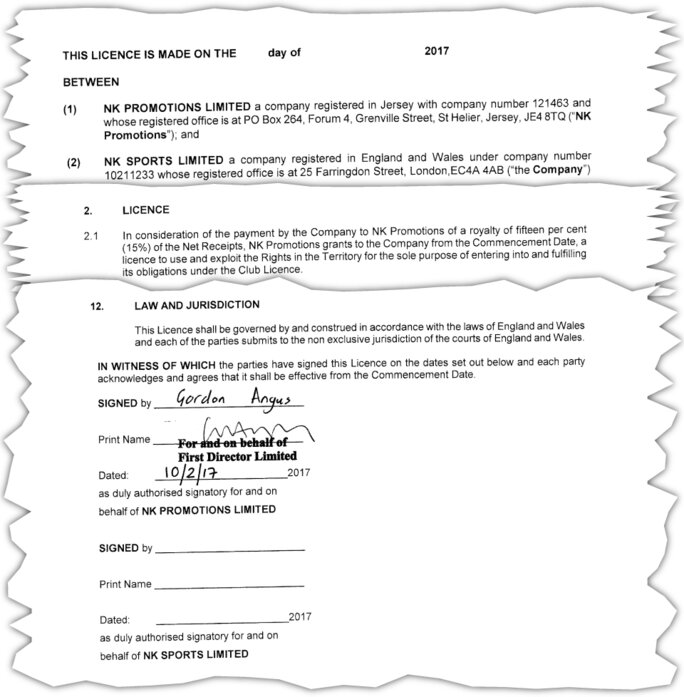
Enlargement : Illustration 7

Kanté told Mediapart that it was his agent Abdelkarim Douis who convinced him to establish the company NK Promotions in Jersey, and that Douis subsequently served as a “witness” for the signing of contracts. There are striking similarities between the player’s company and that of Douis: both were created on June 3rd 2016, were registered at the same address, and used the same company domiciliation business. Both are also owned by two shareholders with equal half stakes, and who are hidden behind nominees (see below).
When Mediapart met with Kanté, he claimed he did not know who owned his Jersey company, adding that the question should be put to his tax advisor. He appeared surprised that his name does not appear anywhere on the company documents filed with the registration office.
Agents wage war over Kanté’s image rights
NK Promotions, registered six weeks before he signed to join Chelsea, initially had nothing to do with the London club. It was set up to benefit from the British tax scheme for “non-residents”, whereby they pay tax on their income paid in the UK but not on income paid from outside the country. NK Promotions, in which Kanté based ownership of his image rights which were sold outside the UK, was therefore legally allowed to receive a part of his remunerations from Adidas, and tax-free.
But such offshore schemes are used less and less by footballers because of increasing scrutiny by the UK tax authorities. In France, the law requires that sponsorship payments linked to activities in the country must be declared and taxed there, even if the player is resident outside of France. In the case of Kanté, Adidas uses his image in its business activities in France. Questioned about this by Mediapart, N'Golo Kanté insisted that, “I am in order with my legal and declarative requirements”.

Enlargement : Illustration 9

While Abdelkarim Douis in June 2016 convinced Kanté to transfer part of his image rights earnings to Jersey, one month later the Chelsea and France midfielder signed a contract which gave exclusive power for negotiating his image rights to agent Nouari Khiari, who had been working under an English professional licence for two years.
When Mediapart this week informed him that it had obtained access to the terms of the formal complaint he has filed, Khiari confirmed the information. He accuses Abdelkarim Douis of having threatened his life in order to gain control of managing Kanté’s image rights, notably his exclusive advertising deal with Adidas.
In his formal complaint, Khiari recounted that when he was with Kanté in London in September 2018, the two of them were invited to dinner by a member of the Saudi royal family. He said that because he was unable to attend the dinner on the day in question, he sent a friend to represent him. Douis was also present at the party and, alleged Khiari, the agent told his friend: “As of now I forbid you to talk with N’Golo, to telephone him, to get into contact […] In any case, the other one, your pal Nouari [Khiari], we’ll take care of him, we’ll take a team, they’ll cut him into pieces.”
Both N’Golo Kanté and his agent deny that this was said.
After Mediapart submitted questions to them regarding the issues raised in this report, Kanté’s entourage told French sports daily L'Équipe that the player on Tuesday had filed a formal complaint against Khiari for “fraud”, “attempted fraud”, “breach of trust”, and “illegally exercising the profession of a sports agent”. Kanté’s lawyer confirmed that the player had filed a complaint, but declined to detail its contents. Meanwhile, Nouari Khiari dismissed the reported accusations as “untrue”.
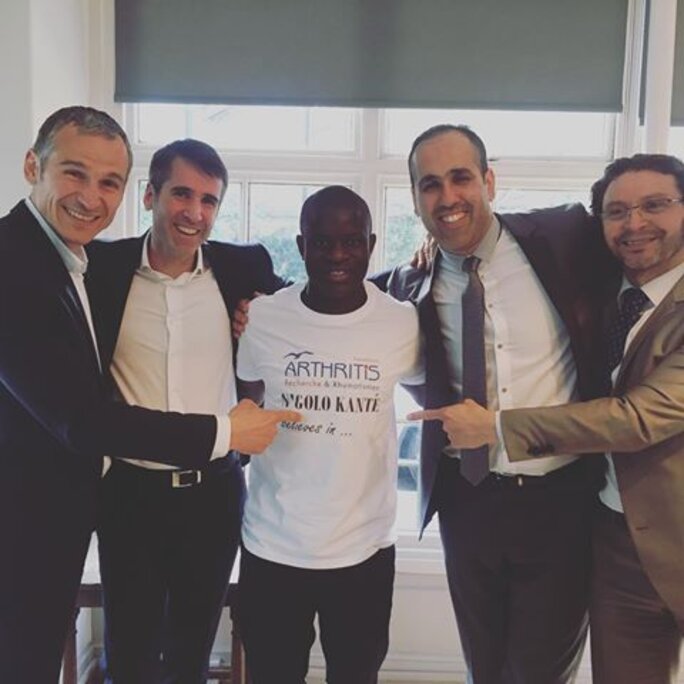
Under his contract, Khiari was entitled to both hourly remuneration for his services and a 25 percent payment of the value of image rights deals he struck. It was through Khiari’s mediation that Kanté became an “ambassador” for a French foundation, La fondation Arthritis, which champions research into rheumatism complaints, which are particularly frequent among sports players.
Khiari said he had begun sponsorship negotiations with German carmaker Volkswagen, a mineral water brand, and a Qatari fruit juice producer, but that none of these were finalised with a deal because, he told Mediapart, “for reasons I don’t understand, N’Golo responded to these propositions by silence”. According to a report in L'Équipe, Kanté was displeased with a proposition from Khiari for a deal with the French lottery company, la Française des Jeux, which he refused to take part in because it was contrary to the principles of his Muslim faith.
Relations between the two appear to have become strained as of the summer of 2017. Kanté had agreed to pay Khiari 150,000 euros in hourly fees during the latter’s first year as his image rights agent, but on condition that they agreed together a new contract which would set a fixed annual remuneration for Khiari of 50,000 euros. That proposition was never signed.
At the end of 2018, the midfielder began proceedings, through his Paris-based lawyer Nadia Zrari, to put an end to his ties with Khiari. The process is still unresolved due to disagreement over the sum to be paid to Khiari in compensation for termination of the contract. Khiari said he had refused an offer of 300,000 euros made to him during a meeting in London last month with Kanté and his agent Abdelkarim Douis. Khiari dismissed the amount as “derisory with regard to what represents 25 percent of the new contract with Adidas, which amounts to millions of euros”.
Mediapart understands that the image rights contract between Kanté and Adidas expired in mid-2018, and that while the sportswear firm has proposed a five-year deal worth a total of 15 million euros this would mean the player has been paid nothing by his exclusive sponsor over the past year.
However, Douis said Kanté had indeed signed a renewal of his contract with Adidas. During the summer this year, Kanté posted on his Facebook and Instagram accounts two videos advertising Adidas, which were reportedly remunerated. Asked whether this posed legal problems given the exclusive contract for image rights he still had with Nouari Khiari, Kanté told Mediapart that the matter was “confidential”. Contacted, Adidas declined to comment on the matter.
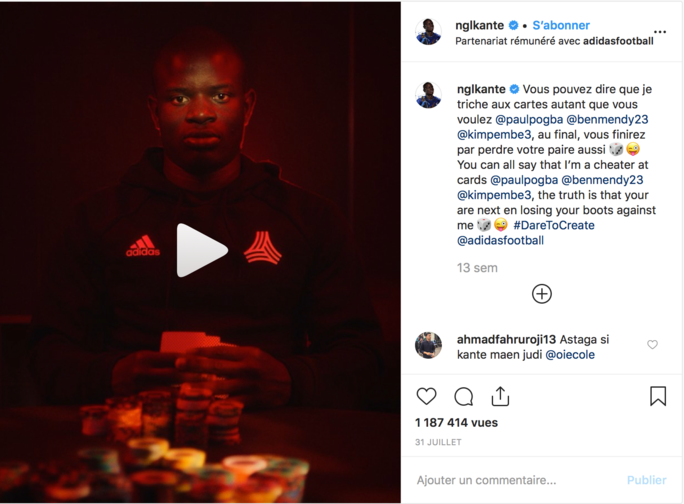
Enlargement : Illustration 11

Despite his denials, Kanté appears to have had doubts over pursuing his professional relationship with Abdelkarim Douis. Sources have told Mediapart that in the autumn of 2018, shortly before the renewal of his contract with Chelsea, Kanté informed Douis that he would only renew his contract with the agent for one further year, up until December 31st 2019. He also allegedly told Douis that the latter’s commission for re-negotiating the player’s contract with Chelsea would serve as a final payment before their separation.
In early 2019, Douis’s name no longer appeared on the FA’s official list of agents, or “intermediaries”. Douis told Mediapart that any suggestion this was related to his dealings with Kanté was untrue. “It concerned an oversight for the renewal and which was of course put back in order afterwards,” he said. Indeed, in September, his name was again on the list of FA-recognised intermediaries, and Douis told Mediapart that last month Kanté had renewed his contract as the player’s agent for a further two years.
Mediapart understands from sources that Kanté also envisaged, in 2018, hiring an outside financial advisor to carry out an audit of his contracts and companies, and to restructure his wealth management, but that he finally abandoned the idea two months ago.
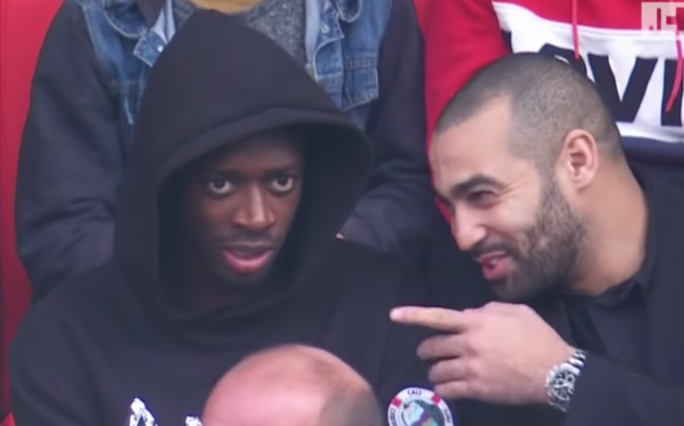
Enlargement : Illustration 12

It was following Kanté’s transfer from Leicester city to Chelsea in 2016 that Abdelkarim Douis settled in London. Since then, the list of players he acts as agent for has grown. They include Aboubakar Kamara, a striker with England’s Championship side Fulham, Rafik Guitane, who Douis sold to French club Stade Rennais in 2018, and Pierre-Emmanuel Ekwah-Elimby, who he transferred to Chelsea in 2018 when the player was aged 16. Last year he was seen at the Stade Rennais ground with the club’s former young star player Ousmane Dembélé, who is now a forward with Spanish side Barcelona. Douis has close relations with Dembélé’s agent, Moussa Sissoko.
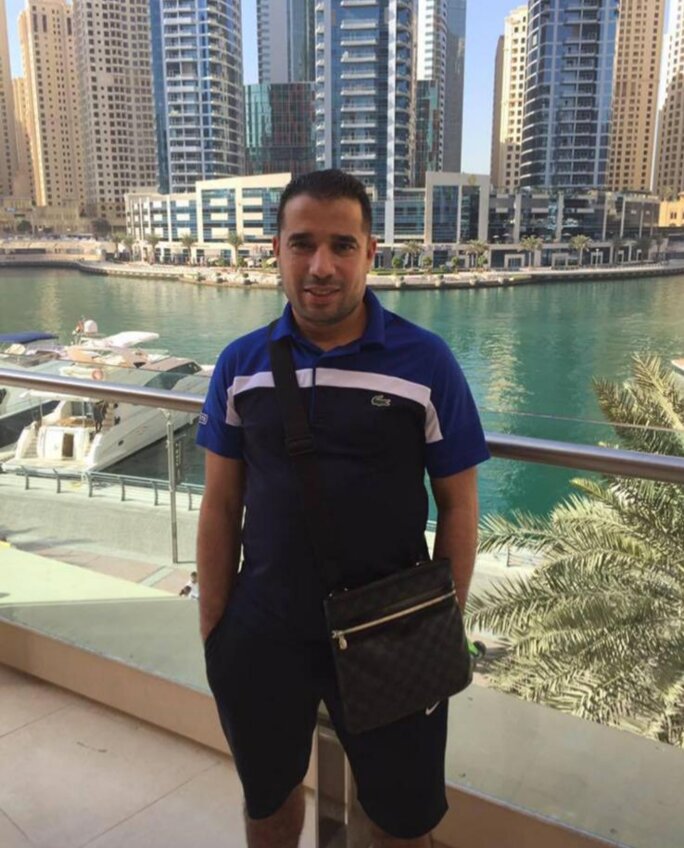
Enlargement : Illustration 13

According to documents published by England’s Football Association, Douis shared the commission paid to him in November 2018 with those who helped him become Kanté’s agent, namely Idriss Gharout and Rachid Saadna. Gharout and Saadna had become officially registered with the FA as intermediaries just a few weeks before the contract renewal. While Douis declined to tell Mediapart what role the two men had played in that deal, Kanté confirmed that all three acted as his advisors.
Idriss Gharout, a childhood friend of Kanté’s, has now settled in the United Arab Emirates (UAE) tax haven of Dubai, where he plays in amateur football and where Rachid Saadna, who exerted pressure on Kanté in 2017, enjoys travelling to. Mediapart has been told by several sources that Abdelkarim Douis has also travelled to Dubai to seek out a bank and investment opportunities. Douis, however, insisted that his presence in the UAE was not “on behalf of, nor in the interest of N’Golo”.
-------------------------
- The original French version of this report can be found here.
A full list of the questions submitted by Mediapart to N'Golo Kanté and his replies to them can be found, in the original French, along with the questions submitted to Abdelkarim Douis and his replies, by clicking on the 'More' tab at the top of the page, or by clicking here.
English version by Michael Streeter and Graham Tearse
-------------------------
If you have information of public interest you would like to pass on to Mediapart for investigation you can contact us at this email address: enquete@mediapart.fr. If you wish to send us documents for our scrutiny via our highly secure platform please go to https://www.frenchleaks.fr/ which is presented in both English and French.
-------------------------


